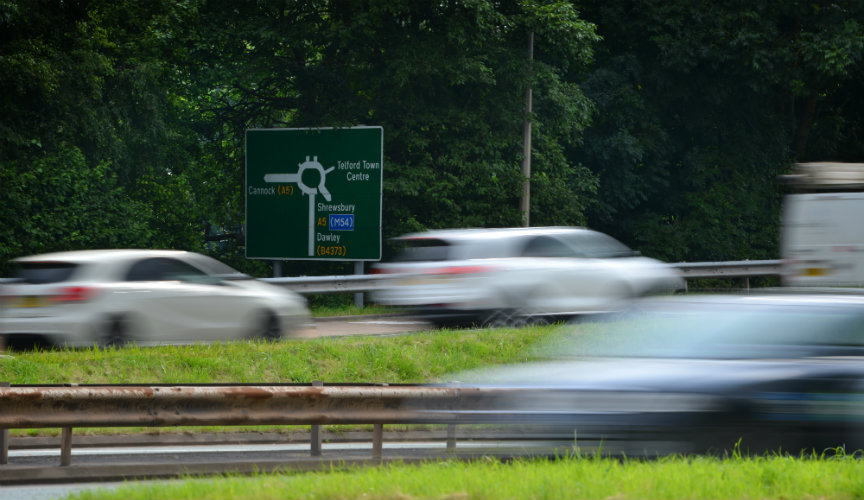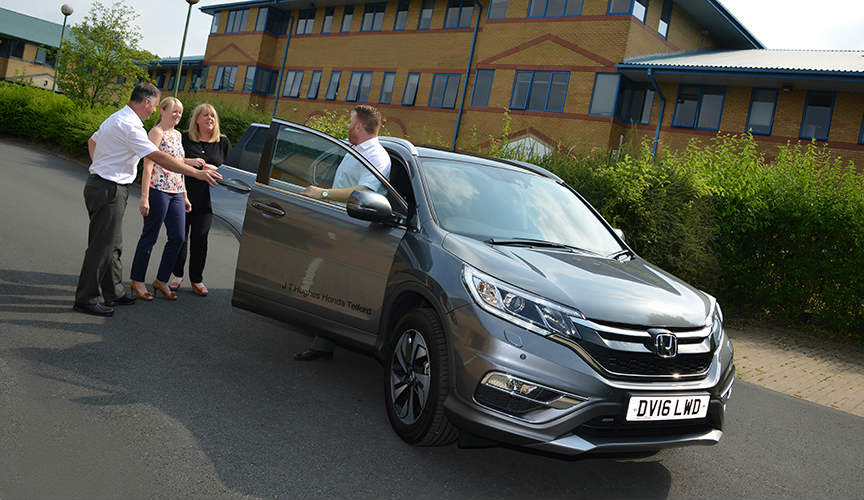https://www.jthughes.co.uk/Blog/View/Shropshire-s-Costly-Car-Work-Commute-Start-car-Sharing/3300
Shropshire’s Costly Car Work Commute - Start car Sharing
Despite many people looking forward to a weekend barbeque, I have already witnessed many residents preparing for December 25, complete with a gift list in hand. But here’s something to remember: according to The Money Charity, 9.61 million UK citizens do not own any household savings.

With uncertainty surrounding the future of the UK economy, it is no surprise that people are looking to stretch the length of their money at every opportunity.
Along with collecting coupons, the urge to cut the daily cost of running a car is no exception. But, when research by the AA suggests that it costs 51.60 pence per mile to run a car, how is it possible to stretch our pennies any further?
The Daily Expense of Commuting in Shropshire
One of the biggest drawbacks to running a car is the cost of fuel. The biggest chunk of our salaries is spent on commuting into work with fuel, train fares and parking fees. The RAC Foundation notes that there are 184,779 cars/van in Shropshire. Therefore, its no surprise that commuting in Shropshire is most common by private vehicle, as 65.4% of travellers choose to drive their own car/van.
At the start of the year, households welcomed news that fuel prices had reached record lows. However, thanks to the the laws of inflation, prices soon shot up again and after six months the cost of fuel has increased for the third consecutive month.
Of course, this makes the cost of every drive more expensive. For many Shropshire residents, fuel prices are a significant financial issue.
Fuel is a what keeps day-to-day life in Shropshire running smoothly, especially as many commuters are forced to leave the county borders. According to the 2011 census, just over half of locals commute within the county lines*.
In fact, the average commute to work in Shropshire is 18.7 kilometres (11.6 miles), with 24% of locals commuting outside of the Shropshire borders.
This doesn’t take into consideration the 34,000 locals who commute from Shropshire to Birmingham and 3,000 inbound travellers from the Welsh borders.
Ads by JT Hughes
Scroll to continue with content
Car Sharing is a Saving Grace

Leading the way in reducing costs, workers in Telford borough have embraced car sharing as an option to reduce their bills. As recommended by local government, Carshare Shropshire and Telford is an initiative that helps employers and employees set up suitable car sharing arrangements for their commute.
There are 56 employers registered with the program, of which 47 are based within Telford borough. Russell Griffin, a representative of Carshare Shropshire, believes the program has huge potential in bettering personal finances and reducing road congestion.
He said, “There is great potential to save money, especially on fuel. If you make a journey of 12 miles each way to and from work, 5 days a week for 45 weeks per year, the typical fuel costs would be over £1,000. If it was shared with one other person both sharers would make a potential saving of over £500 each per year.”
Current statistics show that the program saves 483.58 tonnes of CO2 per year, as well as over 1 million miles worth of day-to-day driving in Shropshire. “Carshare Shropshire and Telford will help put people in touch with potential sharers who live and work close by to them, but who they previously may not have ever linked up with.”
The program has “steadily grown” in recent years with an overall membership increase of 22-percent. Griffin added, “The number of carshare groups has increased by 22% and over 1600 people are registered with the scheme.”
You don't just save on Fuel.
In addition to fuel savings, there are also secondary bills that incur as the result of motoring. Those who are able to claim travel expenses through employment are generally paid with consideration of ‘wear and tear’.
By splitting the number of cars travelling across the same journey, car sharing reduces the amount of general damage to Shropshire’s car population.
In turn, this prolongs the period between services and costly maintenance bills. For many, parking can also increase your weekly spend. Calculations by Shropshire and Telford car share suggest that there is also the opportunity to lessen the impact of parking costs.
Based on £2 daily parking charge, a journey shared by two people could save £225 worth of parking each year. However, the benefits of car sharing are felt well beyond Shropshire car sharing programs.
For instance, University Lecturer Robert Cooksey commutes 40 miles per day from suburban Shrewsbury to Wolverhampton. He says, “I have regularly split my commute with my colleagues for the last three years and has between us saved valuable time and fuel. We car share on our own terms and arrange around our own schedule. As we work in the same office it is incredibly easy to arrange.”
Car sharing and mobile networking.
Some commuters believe that car-sharing is an opportunity to build professional relationships. Cooksey believes that the added time spent commuting with his colleagues has helped developed strong working relationships.
“My daily commute is fairly long so sharing this with my colleagues means that I can break up the chore and make it more enjoyable. And spending this extra time outside the work means we have strong professional relationships while knowing each other beyond the workplace.”
Similarly, shared commutes is an idea regularly explored by workplace wellbeing mentors.
Renee Clarke, Midlands Workplace Wellbeing consultant, adopts car sharing as a suggested strategy to improve workplace relationships. She strives to develop happier working environments by creating understanding employee-employer relationships.
In her ‘5 ways to wellbeing’ workshop, she suggests car sharing as an added activity to be adopted by workers.
The Mental Expense of Commuting
Research by The Office for National Statistics has also shown that both your method of travel to work and length of your commute can impact your personal wellbeing. It is believed that those who travel further to work have lower life satisfaction.
The Commuting and Personal Wellbeing Report 2014 says: “[Commuters have] a lower sense that their daily activities are worthwhile, lower levels of happiness and higher anxiety on average than non-commuters.”
Even so, by choosing multiple methods of travel, such as the train or coach, the report showed commuting became equally unsatisfactory, particularly on journeys lasting more than 30 minutes.
*Based on buying a new petrol car for between £13,000 and £18,000, replacing it after 4 years, and averaging 10,000 miles per year